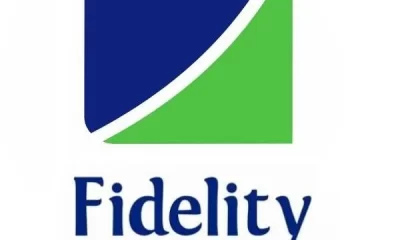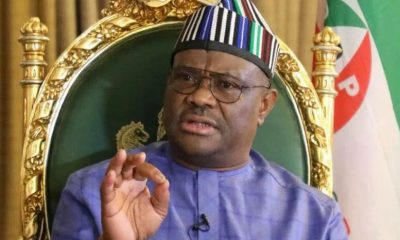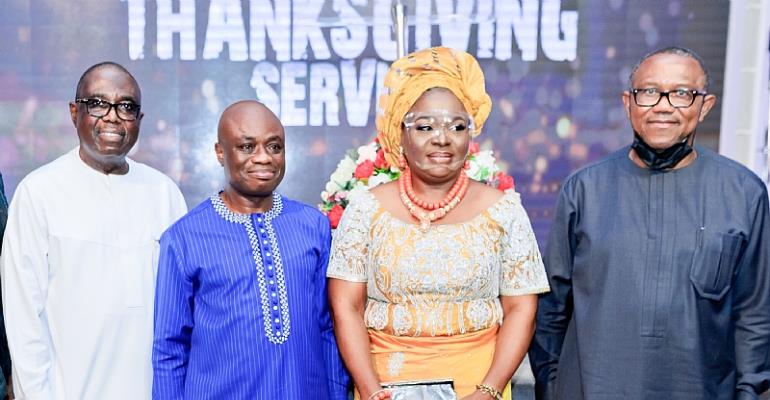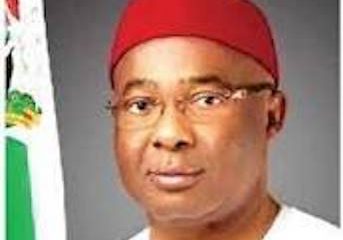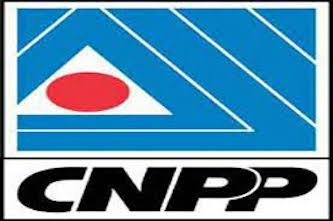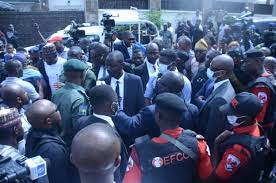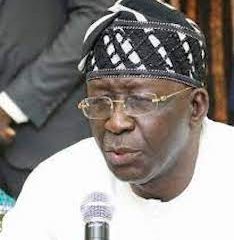Business News
Fidelity Bank, NEPC, LBS Train 100 SMEs in Kano on Non-oil Exports
Fidelity Bank Plc has trained over 100 SMEs at the 8th edition of the highly acclaimed Export Management Programme (EMP) with the aim of providing impactful, world-class support to Micro Small Medium Enterprises (MSMEs) in Kano State.
The training is in partnership with the Nigerian Export Promotion Council (NEPC) and the Lagos Business School (LBS), this programme currently in its third year was designed specifically to enhance the competitiveness of export-oriented businesses.
The programme has since graduated over 400 entrepreneurs who have transitioned from base level export experience to becoming established exporters with extensive export market footprints.
Since the commencement of the programme in 2017, the bank had always planned to take EMP to other parts of Nigeria where there are critical mass market opportunities for exports.
Speaking at the opening ceremony, the bank’s Deputy Managing Director (DMD), Mohammed Balarabe commended the participants for enrolling for the programme, adding that it was smart investment decision in the light of emerging opportunities in the non-oil sector of the economy.
“I am very confident that your business will benefit immensely from the insights and knowledge that the programme provides, with return on investment far exceeding the financial and economic costs of the programme to you” Balarabe said. Commenting on the rationale behind holding this edition in Kano, Mr. Balarabe noted that the decision was borne out of the need to exploit the massive potentials of the positioning of Kano as the hub for aggregation of agro commodities in Northern Nigeria.
“Kano is the hub for agro commodity exports in Northern Nigeria and majority of these exports are done informally. We have brought this Programme closer to you to fully unlock the potentials of the Northern Exports market and help you gain the knowledge required to increase your market access” he said.
Also, Regional Coordinator (Northwest) for NEPC, Mr Hassan Bala stated the EMP 8 will help scale the capacity of existing and potential exporters to enable them participate fully in the non-oil export business in Nigeria. “The faculties we have gathered have the capacity and experience to assist the participants in achieving the target set for the programme. It is an invaluable training programme for all businesses interested in Nigeria’s foreign trade”.
The Programme Coordinator and Lagos Business School Faculty Member, Dr. Frank Ojadi decried the over dependence of the country’s economy on oil exports.
“The truth remains that Nigeria’s economy is overly dependent on the oil sector and this makes the prosperity of the economy reliant on crude oil prices. We need to concentrate on development of our non-oil export to increase revenues for the Government and generate employment for the populace.
“We have the natural resources to be a world leader in exportation of several products and it all boils down to the matter of unlocking these potentials. This is one of the major reasons why we partnered with Fidelity Bank and NEPC to create a Programme that not only educates budding exporters, but also enhances the capacity of experienced Exporters to unlock new levels of the Export business. He explained that EMP is designed to equip participants with the knowledge, tools and skills required to develop their export businesses in line with global standards. “We have held seven (7) editions of this Programme in Lagos and majority of the participants have gone on to develop their Export businesses by leveraging on the information gathered. The facilitators will train the participants on how to package their products, development of supply chain and accessing overseas markets.”
Business News
Afreximbank Closes $282 million India-focused Club Deal

By Tony Obiechina, Abuja
The African Export-Import Bank (Afreximbank) has announced the successful completion of a first-of-its-kind India-focussed club deal for US$282.00 million.
Initiated for the exclusive participation of Indian lenders, and arranged by Bank of Africa UK PLC, the primary syndicated club deal saw participation from Indian lenders through their overseas branches and subsidiaries in the Dubai International Financial Centre in the United Arab Emirates, Singapore and Mauritius.
The facility, which was backed by six participating banks and financial institutions, including five that joined as first-time lenders to Afreximbank, helping the Bank achieve its objective of diversifying its funding sources, carries a three-year tenor.
At a commemorative event held in Dubai, U.A.E., to mark the conclusion of the deal, Haytham ElMaayergi, Executive Vice President at Afreximbank, said that the conclusion of the initiative represented a major milestone for the Bank as it sought to fulfil the key objectives of its funding programme.
Highlighting the importance of investing in, and for, Africa, Mr. ElMaayergi said: “this facility will help Afreximbank to continue to play a major role in the development of intra-African trade and trade between Africa and the rest of the world, particularly with India.
It is a testament to the rapid growth in Africa’s economic relationship with India and is evidence of Afreximbank’s growing ability to harness resources into Africa and to fund trade finance related investments that would have a positive impact on trade between Africa and India.”
Chandi Mwenebungu, Director and Group Treasurer of Afreximbank, reviewing the Bank’s vision for Africa, said that its funding objectives included achieving the diversification of its liability book by geography, investor type and tenor.
Also addressing guests at the event were Said Adren, CEO of Bank of Africa UK PLC, who thanked the lenders for their participation, and Zineb Tamtaoui, General Manager of Bank of Africa, Dubai Branch, who expressed appreciation for the opportunity to put together “a landmark deal that would be a stepping stone to many India-focused club deals going forward.”
Business News
Geregu Power Earns N50.4bn From Electricity Sales, Capacity Charges
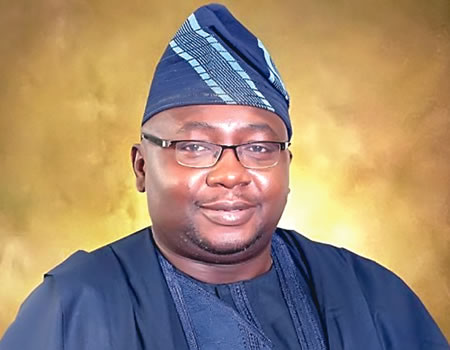
By Tony Obiechina, Abuja
Geregu Power Plc has generated N50.4bn on electricity sales and capacity charges to Nigerians in the first quarter of 2024.
The power company which is the first listed power company of the Nigerian Exchange Ltd disclosed the performance in its Q1, 2024 financial statement.
The company grew its Q1 revenue by 225 per cent from N14.
2bn in 2023 to N50. 4bn in 2023.A breakdown reveals that Geregu Power sold energy worth N31bn and received N19bn as revenue from capacity charge.
Recall that the power company posted an annual revenue of N82.9bn in the full year of 2023 but it has covered half of the amount in Q1.
The revenue was above the company’s forecast for Q1 2024 when it projected its revenue to rise to N31.24bn.
Geregu Power recorded a profit before tax of N21.9bn up from the N5.3bn recorded in Q1 of last year, reflecting 307.8 per cent growth.
During the period underreview, the company saw its profit after tax rose by 307.3 per cent to N14.46bn from N3.54bn recorded in Q1 of last year. In the full year 2023, the company made N16.1bn net profit.
The net profit was above the company projection of N5.5bn.
Geregu Power took an income tax charge of N7.43bn, up from the N1.8bn in Q1 2023. The tax charges were higher than the N2.7bn projected for Q1 2024.
The company also spent N21.5bn on the cost of sales involving gas supply and transportation, up from the N6.6bn spent on gas supply and transportation in Q1 2023.
Business News
CBN Shakes Up Banking Sector: A Paradigm Shift Unveiled

By Ademola Oyetunji
In a surprising turn of events on Wednesday, the Central Bank of Nigeria (CBN) dissolved the boards of three prominent commercial banks – Keystone, Polaris, and Union Bank. This move, although unanticipated, transpired despite the Central Bank’s recent endorsement of these banks’ financial soundness.
Governor Olayemi Cardoso, at his inaugural address during the Chartered Institute of Bankers of Nigeria (CIBN) annual dinner last year, had lauded Nigeria’s financial sector’s resilience in 2023.
Stress tests conducted on the banking industry indicated its strength under various economic scenarios. However, Cardoso highlighted the need for banks to reassess their responsible banking framework, a sentiment echoed by President Tinubu.President Tinubu’s evident discontent with the Godwin Emefiele-led CBN triggered a comprehensive review of the financial system. A special investigator, Jim Obazee, was appointed to conduct a forensic investigation into Emefiele’s tenure, with damning revelations emerging. Recent developments suggest the initiation of a full-blown financial system reform.
The CBN’s dissolution announcement and the subsequent appointment of new executives for the affected banks, including Yetunde Oni, Mannir U. Ringim, Hassan Imam, Chioma A. Mang, Lawal M. Omokayode, and Chris Onyeka Ofikulu, might mark the beginning of implementing the investigation’s recommendations – a significant cleanup of the financial sector.
Allegations surfaced during the investigation, suggesting non-cooperation from some bank executives and Emefiele’s questionable acquisitions through proxies and cronies. Cardoso may have secured presidential approval for the CBN’s decisive action.
The CBN cited various infractions by the banks, including regulatory non-compliance, corporate governance failures, and activities threatening financial stability. Despite the challenges, the CBN assured the public of depositors’ fund safety and its commitment to upholding a safe, sound, and robust financial system.
The Special Investigator’s report revealed documents pointing to Emefiele’s involvement in Titan Trust Bank and Union Banks’ acquisitions with ill-gotten wealth. The CBN’s swift replacement of the ousted chief executives received widespread commendation, especially from high-net-worth stakeholders aiming to avert a crisis of confidence within the affected banks.
Adewale Aderounmu, an industrialist, applauded the CBN for implementing effective policies under Olayemi Cardoso’s leadership, despite detractors’ actions against the Naira. Ayomide Deepak, an Abuja-based stockbroker, welcomed the action but emphasized the need for caution in handling revelations from the investigation to prevent further economic challenges.
As the CBN wields its regulatory hammer on these banks, the hope is that other bank executives and investors will learn valuable lessons for the sake of the economy. The CBN’s action is perceived as a strategic move aimed at revitalizing the economy and financial system, not a mere vendetta.
*Ademola Oyetunji writes from Ibadan.

